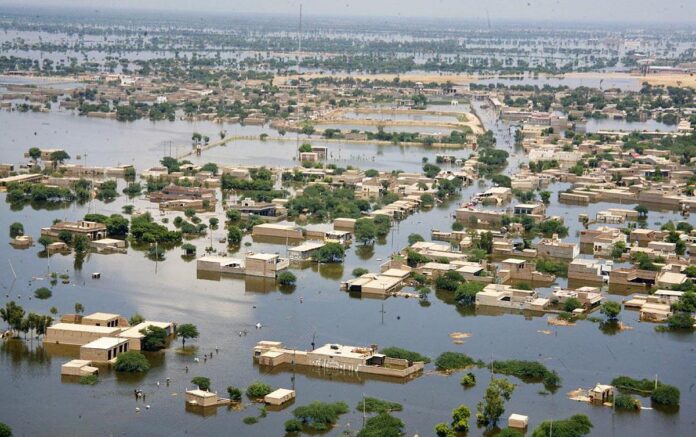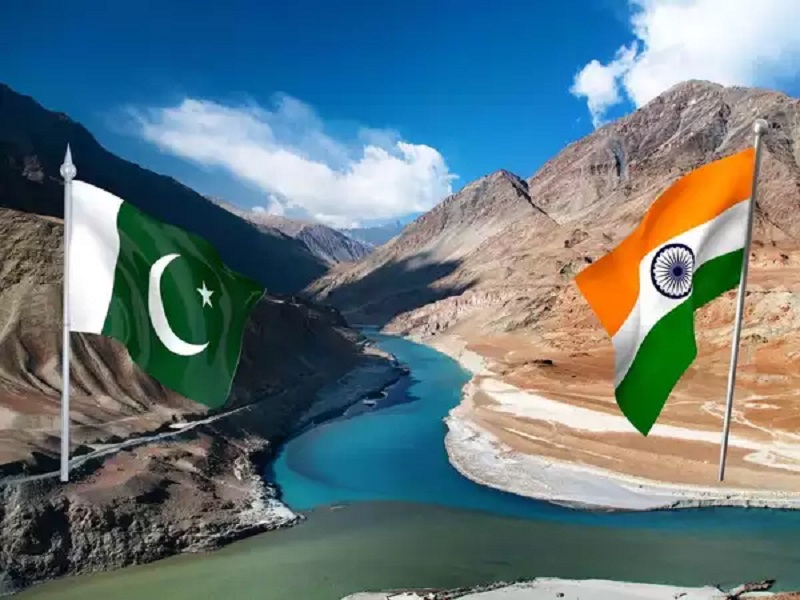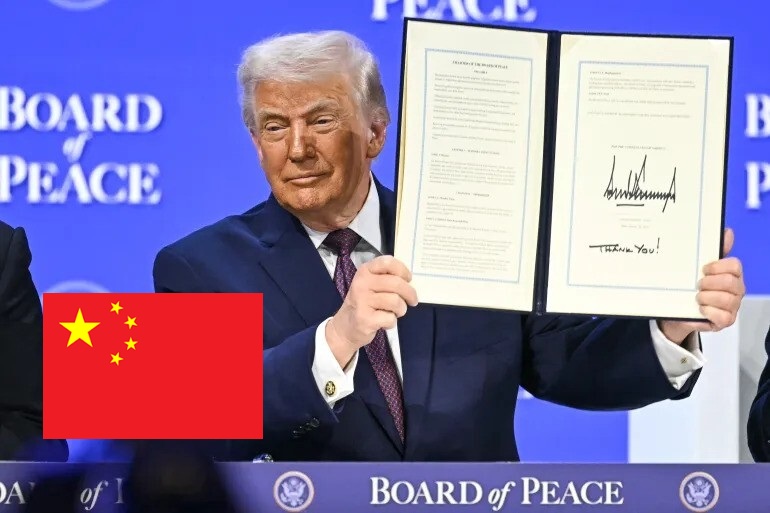The question of whether India is waging a “water war” against Pakistan has resurfaced time and again, particularly whenever floods or water shortages strike. The issue is not just about rainfall or rivers; it touches the very heart of survival for millions of people in both countries. Water is life, and for Pakistan, which is heavily dependent on the Indus River system, upstream developments in India often raise suspicions of deliberate manipulation.
But is this truly a water war—or a crisis of mismanagement, mistrust, and missed opportunities for cooperation?
The Indus River Lifeline
Pakistan is one of the most water-stressed countries in the world, and its reliance on the Indus River system is nearly absolute. Almost 90% of Pakistan’s agriculture depends on the Indus and its tributaries—the Jhelum, Chenab, Ravi, Beas, and Sutlej. These rivers originate in India, meaning upstream control inevitably affects downstream availability.
For India, these rivers are equally vital. States like Jammu and Kashmir, Punjab, and Himachal Pradesh depend on them for irrigation, hydropower, and drinking water. Both nations share this lifeline, but sharing has often turned into suspicion.
The Indus Waters Treaty: A Historic Agreement
In 1960, India and Pakistan signed the Indus Waters Treaty (IWT) under World Bank mediation. The treaty allocated:
-
Eastern rivers (Ravi, Beas, Sutlej) to India.
-
Western rivers (Indus, Jhelum, Chenab) to Pakistan.
India retained limited rights over western rivers for non-consumptive uses like hydroelectric projects. Remarkably, the treaty has survived wars, conflicts, and decades of hostility. It is often hailed as one of the world’s most successful transboundary water agreements.
However, as water demand increases and climate change intensifies floods and droughts, tensions over the treaty have resurfaced. Pakistan often accuses India of violating its spirit by building dams and hydropower plants that allegedly reduce flows downstream. India, on the other hand, insists it has abided by the treaty while exercising its rights.
Allegations of a “Water War”
The phrase “water war” gained traction in Pakistan after Indian leaders threatened, at various times, to “review” or “suspend” the Indus Waters Treaty in response to political or military tensions. Critics argue that such rhetoric turns water into a weapon.
Pakistani officials and media have repeatedly raised concerns about Indian projects like:
-
Baglihar Dam (Chenab River) – Pakistan claimed it reduced water flows, though arbitration allowed India to continue with modifications.
-
Kishanganga Project (Jhelum River) – disputed at the Permanent Court of Arbitration, which allowed India’s project but required certain safeguards for Pakistan.
-
Ratle Hydroelectric Plant (Chenab River) – another point of contention still under discussion.
For farmers in southern Punjab or Sindh, reduced flows often feel like deliberate sabotage, fueling the narrative of a water war.
The Flood Dimension

Ironically, accusations of a “water war” also emerge during floods. When India releases excess water from dams during heavy rains, Pakistan often complains that it is done without adequate warning, leaving downstream communities unprepared. The tragic 2022 floods in Pakistan, which displaced over 33 million people, reignited debates over upstream water management.
From Pakistan’s perspective, sudden water releases look like aggression; from India’s perspective, they are emergency measures to prevent dam breaches. This lack of coordination fuels mistrust, even when the intentions are not hostile.
Climate Change: A Shared Enemy
While political narratives frame the issue as a bilateral conflict, the real enemy is climate change. Rising temperatures are melting Himalayan glaciers at alarming rates, feeding rivers unpredictably. Monsoon patterns have become erratic, leading to alternating cycles of droughts and floods.
Both India and Pakistan rank among the world’s most climate-vulnerable countries. Instead of fighting over water, they urgently need joint strategies to manage shared risks:
-
Flood forecasting and early warning systems.
-
Joint glacier monitoring programs.
-
Shared data on river flows and rainfall.
-
Coordinated disaster management exercises.
Without cooperation, both countries will continue to suffer devastating losses year after year.
Cooperation vs. Confrontation
Viewing water as a weapon only worsens the crisis. In reality, the Indus Waters Treaty demonstrates that cooperation is possible. Even in the darkest periods of India-Pakistan relations, water sharing continued.
Imagine if the same spirit extended to:
-
Real-time data sharing on dam releases and rainfall.
-
Joint river commissions empowered to make transparent decisions.
-
Collaborative infrastructure projects to reduce flood damage and improve irrigation efficiency.
-
Civil society and academic dialogues to depoliticize water issues and focus on solutions.
Such steps would not only reduce human suffering but also build trust in one of the most hostile regions of the world.
Beyond the “War” Narrative
Labeling the crisis as a “water war” oversimplifies a complex reality. While political rhetoric sometimes fans fears, the larger issue is mismanagement, outdated infrastructure, lack of trust, and absence of coordination. Water should not be framed as a weapon—it is a shared necessity.
For Pakistan, the way forward lies not just in vigilance over Indian projects but also in domestic reforms: improving water storage, reducing wastage in irrigation, modernizing canals, and protecting floodplains. For India, recognizing Pakistan’s existential dependence on the Indus system is key to building goodwill and stability.
A Moral and Strategic Imperative
Both nations must realize that water wars are unwinnable. If India restricts flows, Pakistan suffers—but so does regional stability, which ultimately affects India too. If Pakistan faces uncontrolled floods, cross-border humanitarian crises can destabilize the region.
Cooperation, on the other hand, could save billions in disaster relief, strengthen agriculture, and even open pathways to broader peace. Water, rather than being a source of conflict, could become a foundation for reconciliation.
Conclusion: Is There a Water War?
So, is India truly waging a water war against Pakistan? The evidence suggests the reality is more complicated. While political statements and unilateral projects fuel suspicions, the larger picture points to mismanagement, mistrust, and climate pressures rather than deliberate aggression. The Indian High Commission in Pakistan has also clarified that the propaganda in sections of the Pakistan media that India has caused floods in Pakistan is totally baseless, devoid of any truth and mischievous.
Still, the perception of a water war is itself dangerous. In a region where nuclear-armed neighbors already live under tension, turning rivers into weapons—even rhetorically—risks escalating conflicts.
If water can become a cause of mistrust, it can also become a reason for trust-building. By recognizing the recent situation as a common threat, both countries can move from suspicion to collaboration. And in doing so, they can transform shared rivers into shared lifelines—sources not of conflict, but of peace and prosperity.
In the end, rivers know no borders. Whether they become lines of division or lifelines of unity depends on the choices made today.
Mr. Sabahuddin Qazi is Editor-in-chief of the Press Network of Pakistan.



